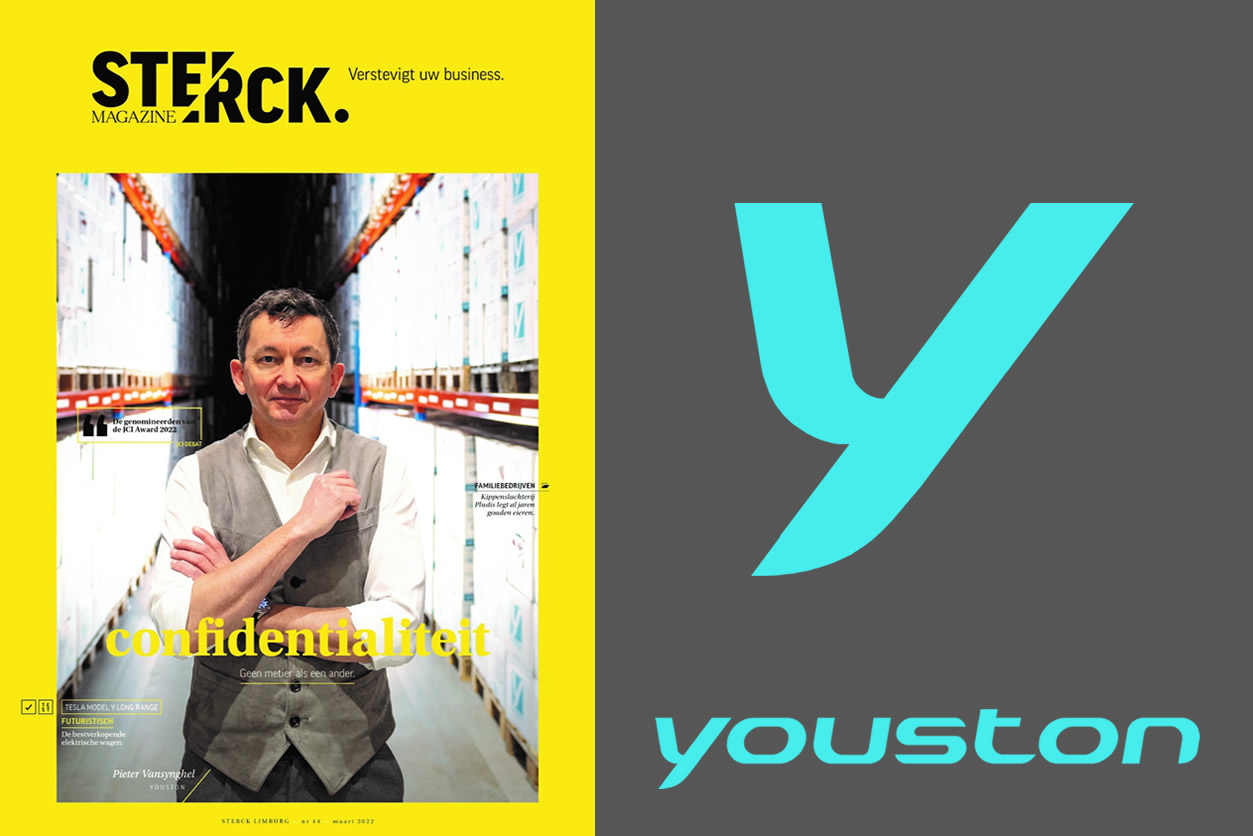Confidentiality as a Craft
Enormous Growth Spurt for Digitization Specialist Youston
The Belgian State Security Service, the National Bank and the financial regulatory body FSMA: these are just a few of the organisations that keep an eye on the Genk-based firm Youston to check that all their processes are up to scratch. Youston helps banks, insurers, hospitals and several thousand small and medium businesses on their way to going digital. With an investment of 25 million euros in a gigantic bunker and the acquisition of iGuana, a competitor three times its size, Youston has stepped out from the sidelines. Nonetheless, that is where its CEO, Pieter Vansynghel, prefers to be.
Anyone who goes looking for the financials on the growing business from Genk will be disappointed. “We work in a relatively small niche market, and our international competitors have got their eye on us”, CEO Pieter Vansynghel explains. “We prefer to stay under their radar. We’re an independent player and we want to stay that way for a long time to come.” In the meantime, Youston has gained a sturdy foothold among the big players in Europe, helped out by capital providers in Limburg. At the same time, their main focus is still on Belgium.
STERCK. So Youston is a specialist in archiving, digitization and document processing?
Pieter Vansynghel: “We specialize in helping our clients transition from a paper-based model to a digital one. And you’re right, one facet of that is archiving. We take in their old archives and make them available digitally. But we don’t digitalize them completely. We index and manage the physical archives. When documents have reached the end of their legal storage period, we inform our client so that we can destroy them confidentially. That way, our clients never need to spring clean their archives again. If they need a particular physical file, it takes a maximum of 60 minutes under our SLA for them to get that file delivered digitally in their own ERP system. So we only digitalize a file if it is requested. That means we only need to digitize the things that our clients actually need. In all the large archives we take over, 95% of documents are never requested. So we remove the need for companies to invest in digitizing that material.”
“Incidentally, digitizing large archives in their entirety would generate petabytes of data. Managing that costs a lot of money. Certainly with today’s GDPR legislation. You also need to protect that data incredibly well from hackers. Nothing is as safe as the paper files in our bunker, that are completely secure and stored under controlled conditions. External parties wouldn’t be able to find anything here. We are creating the largest archive in Western Europe here in Genk. That means 1,500 kilometres of archive. If you lined up all the documents, they would reach from here to Rome.”
1 MILLION DOCUMENTS PER DAY
STERCK. Do you digitize everything you find at the client’s office?
Vansynghel: “We do deal with day-to-day patient files, insurance files and other documents. Last but not least, we also digitize all new, incoming documents at the source and deliver them to the client in the document management system. Our clients’ mail arrives here every day. As soon as we have processed it, everyone with access to the client’s platform can work with it digitally. At home, in the office, on the road, anywhere they like.”
STERCK. And you can scan up to a million documents per day?
Vansynghel: “We need to. If an insurance company calls up 150 files, our SLA demands that we deliver them within the hour. We have people who work on recurrent files, for example to digitize entire hospitals. When big requests come in, these people join in to make sure the SLA is achieved and the documents are delivered on time, as promised.”

